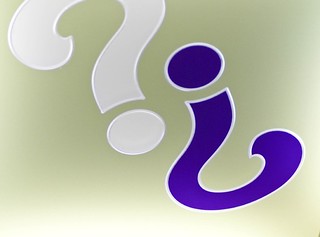A couple weeks ago, I got a phone call from my sister-in-law. Her book club read I, Spy (!), and they wondered if I could provide any discussion questions.
 If you’ve never seen this before, sometimes a book will include five to ten questions at the end to prompt and guide discussions of the novel. Often you see these in general fiction aimed toward book clubs, like These is my Words and The Secret Life of Bees.
If you’ve never seen this before, sometimes a book will include five to ten questions at the end to prompt and guide discussions of the novel. Often you see these in general fiction aimed toward book clubs, like These is my Words and The Secret Life of Bees.
I’ve been to book club meetings where there’s kind of nothing to talk about but the facts of the book—and even those aren’t in debate—so I definitely understand the desire for that kind of help. Of course, I also could’ve used some help coming up with those questions  .
.
I figured I wasn’t the only one, so I wrote up with some ideas on how to come up with discussion questions for your novel.
Think about your theme
I really hope you’ve done this before you published  . Beyond the events of the plot, what is your book about? In reality, you probably have a major theme and some minor supporting themes. Maybe you’ve tapped into the power of because.
. Beyond the events of the plot, what is your book about? In reality, you probably have a major theme and some minor supporting themes. Maybe you’ve tapped into the power of because.
Contemplate your characters’ journeys
What do your characters learn along the way? How do they change and grow because of the events of the story?
Ponder the plot
Rehashing the events of a book does not a book club make. They’ve all read it. How else might the events play out? How did the plot events affect the characters, and the readers?
Consider your characters
What are their attributes and flaws? How are they like—or unlike—people around you? How do their flaws affect the story?
Now: talk about how that applies to the reader
Take those concepts you’ve brainstormed by looking at these areas, and start thinking about how they apply to your readers and their lives. What can they talk about? How can they relate?
Open-ended questions (how, why, etc.) are better at prompting discussion than questions that can be answered with a yes or no. Yes/no questions can build to bigger discussion questions, however.
If your book deals with forgiveness, perhaps you could include discussion points on how to forgive, why we forgive, what you can and can’t forgive other people for, etc. Ask if they’ve ever known someone like this character, or what aspects of themselves they saw in that character. After X event, Character Q feels like he’s been abandoned by his last hope. Have you ever felt that way?
My discussion questions
So here’s what I came up with!
- Talia has to keep a secret from the man she loves. Have you ever kept a secret from someone you love? How did that affect your relationship?
- Talia learns that love can be a source of strength. How has love made you stronger? How else has love changed you?
- Danny feels betrayed by Talia. How have you dealt with someone you love lying to you?
- After months of training in DC, and several months of more in-depth instruction far away from family and friends, CIA trainees are allowed to bring their closest family members for a family weekend. As part of the weekend, family members are loaded onto a bus for a tour of the Farm facility.
One year, the instructor-turned-tour guide clapped his hands and welcomed the family members to the CIA.
One woman leapt to her feet. (In some stories, she’s even holding a young child.) “The CIA?” she exclaimed. “My husband works for the CIA?!” Could you forgive someone for something like that?
- Elliott has a hard time keeping his work and family priorities straight. (Don’t we all?) What would your priority be in his situation? Could you balance better than he does?
- Talia is afraid of commitment partially because of her family history, especially her parents’ failed marriage. How have you seen the effects of relationships across generations?
- Do you think you would make a good spy? Why or why not?
What do you think? How have you or would you come up with discussion questions?
Photo credit: Valerie Everett










